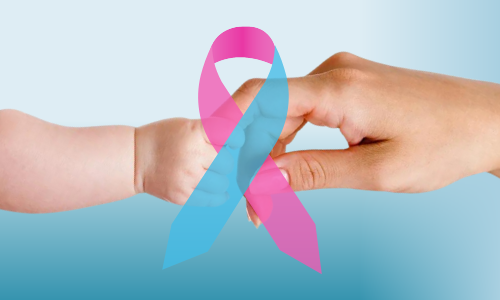


Every year June is observed as World Infertility Awareness Month. It is the ideal time to create more awareness of the fact that infertility is a medical condition affecting a surprising large and growing number of couples around the world, who can be successfully treated with a range of advanced fertility treatments.
Infertility is defined at the inability to conceive after one year of unprotected intercourse, or the inability to carry a pregnancy to live birth. No doubt that infertility is one third attributable to the woman and another third to the man. The remainder is due to both of them or unknown causes in the couple.
Some of the most common reproductive challenges faced by couples throughout the world include:
• PCOS Infertility.
•Premature Ovarian Failure.
• Secondary Infertility.
• Recurrent Miscarriage.
The conditions that could result in infertility in the women include for example advanced age, when a woman is around age 35, the quality and quantity of her eggs decline. endometriosis or ovulation problems. It may also be that a woman’s ovaries have been removed surgically or that she has undergone chemotherapy and her ovaries are not functioning. Polycystic Ovary Syndrome (PCOS) is another medical condition that is a known cause of infertility.
In men, infertility is most commonly linked to sperm disorders (not producing enough sperm, slow moving or not moving at all) t can also be the result of injury, a higher testicular temperature hormonal problem, lifestyle factors and the treatment of diseases such as cancer. Age is not that important but sperm quantity, sperm quality and testosterone decline throughout the years.
What can we do for you?
help is available at our clinic that offer a range of safe, advanced treatments. If you are concerned about your fertility, see one of our fertility specialists as soon as possible.
To determine which treatment is required, the exact cause of a couple’s fertility issues must be established. Once an accurate diagnosis has been made, the precise treatment can be selected among all the options are available.
Fortunately, newer and more successful techniques for infertility treatment are developed continuously.
IVF is one of the better-known fertility treatments, due to its success rate. During in vitro fertilization the female partner’s eggs are collected and fertilized with sperm in a laboratory, before the resulting embryo is implanted into the uterus.
For women with infertility challenges resulting from problems with ovulation poor ovarian reserve or menopause, there are treatments such as ovulation induction.
Assisted while GIFT (Gamete Intra Fallopian Tube transfer) and ZIFT (Zygote Intra Fallopian Tube transfer) treatments place the egg and sperm, or embryo, directly into the fallopian tubes. Laparoscopy and hysteroscopy are used for both diagnostic (looking only) and operative (treating) purposes.
There are also a range of treatments available for male infertility. Among the most exciting is Intra Cytoplasmic Sperm Injection (ICSI), it involves the selection of a single sperm by an embryologist, taken up in a fine glass needle, and injected directly into each egg. the fertilised egg (embryo) is then transferred into the womb using the same method as an IVF cycle.
Remember that the sooner you start, the sooner you can be on the path of fulfilling your family dreams and seeking help is important as infertility can also have significant psychological ramifications, such as stress, depression and anxiety and bring great emotional upheaval for most couples.